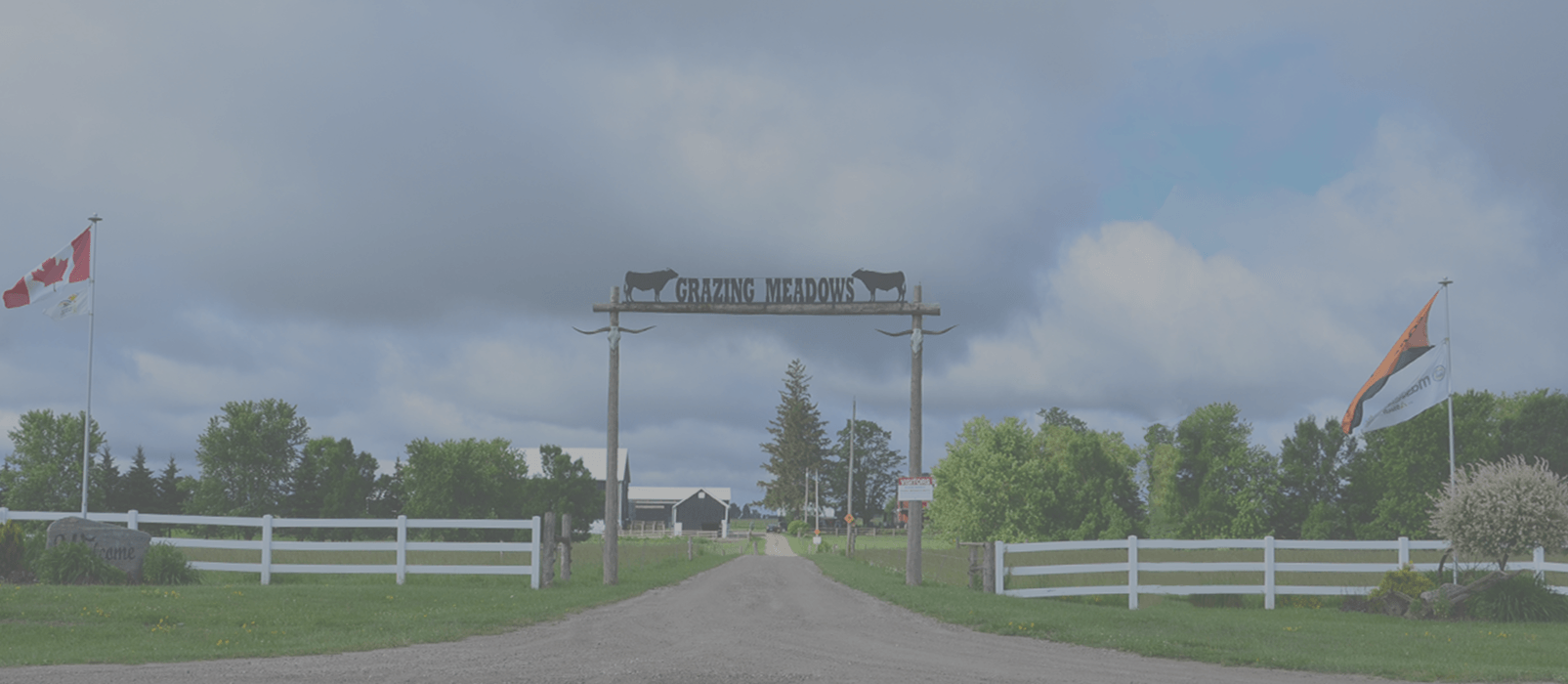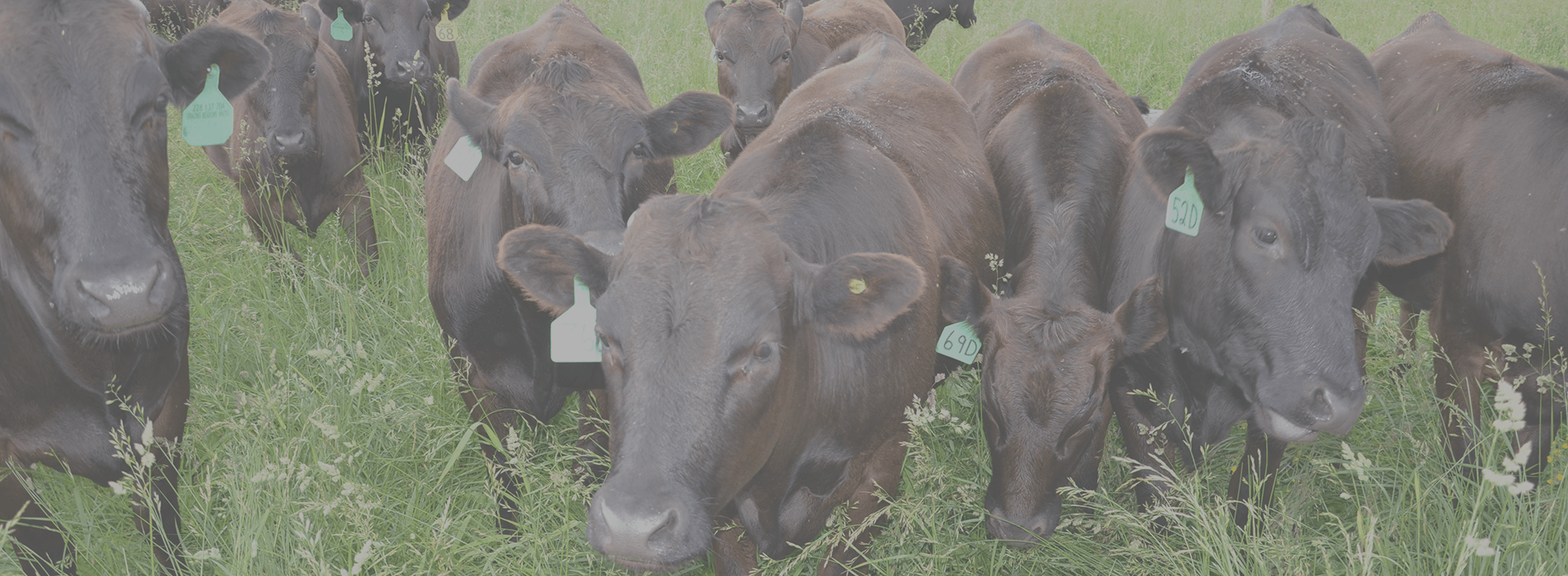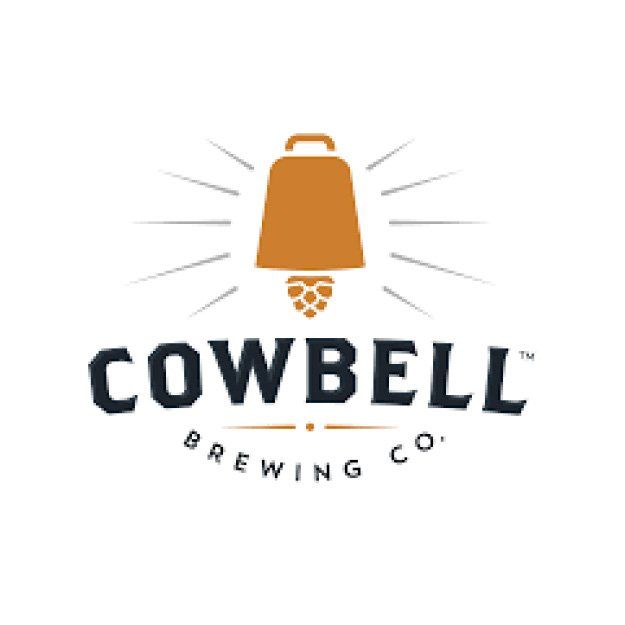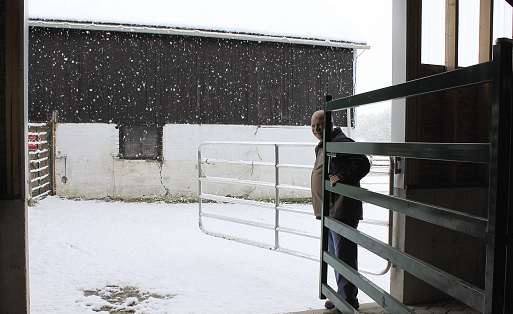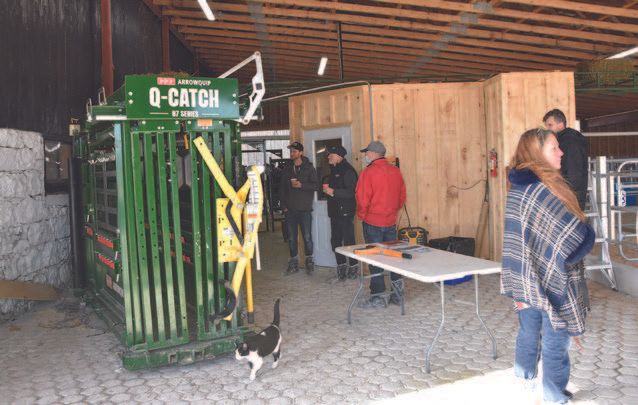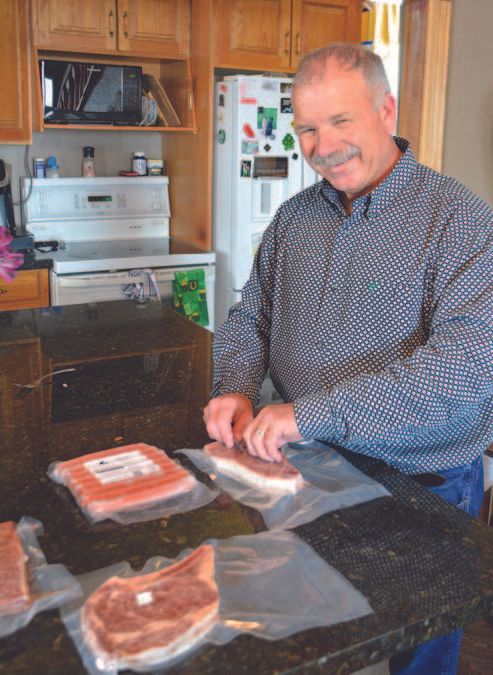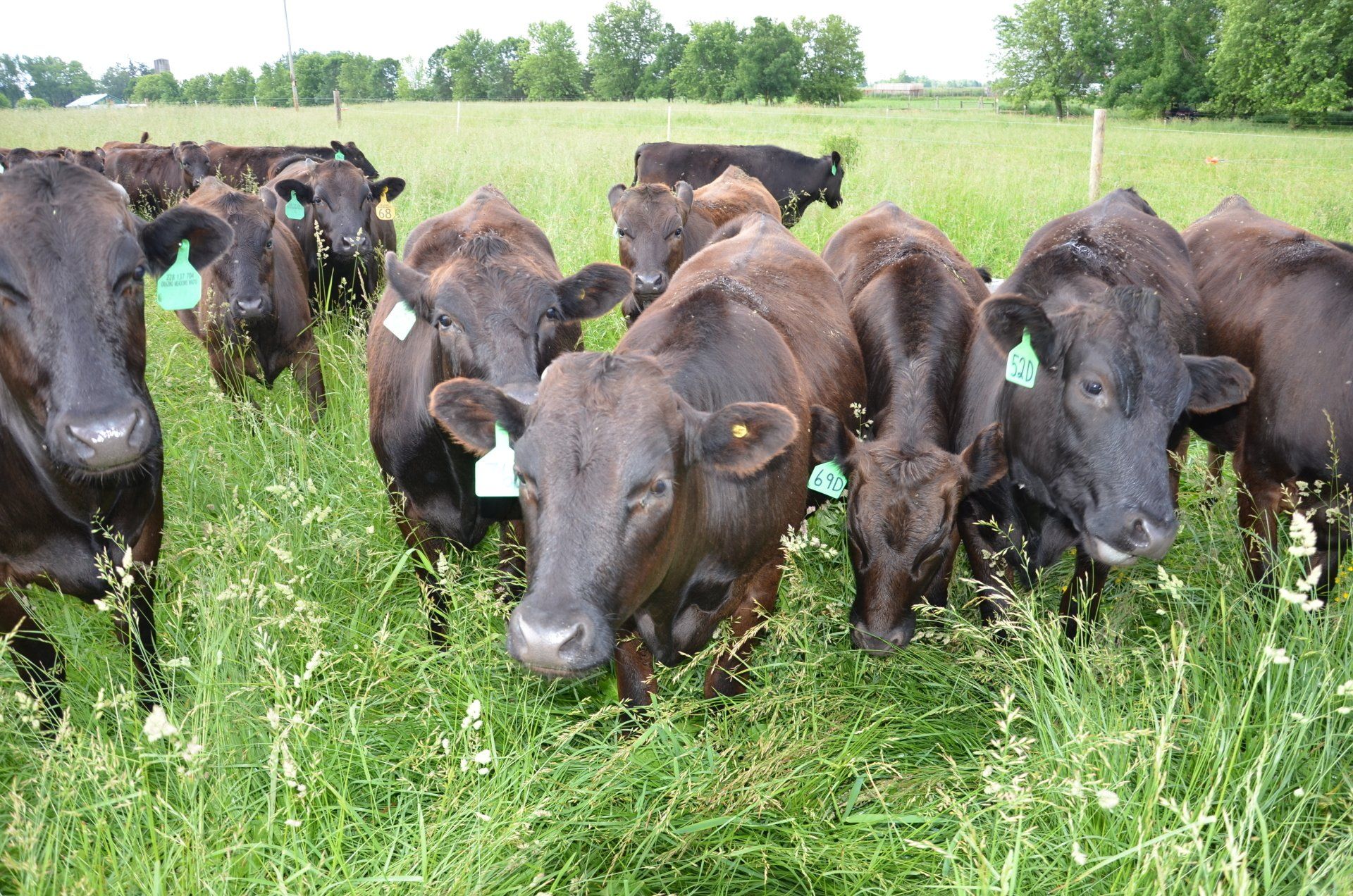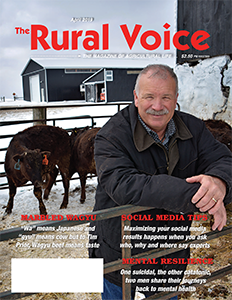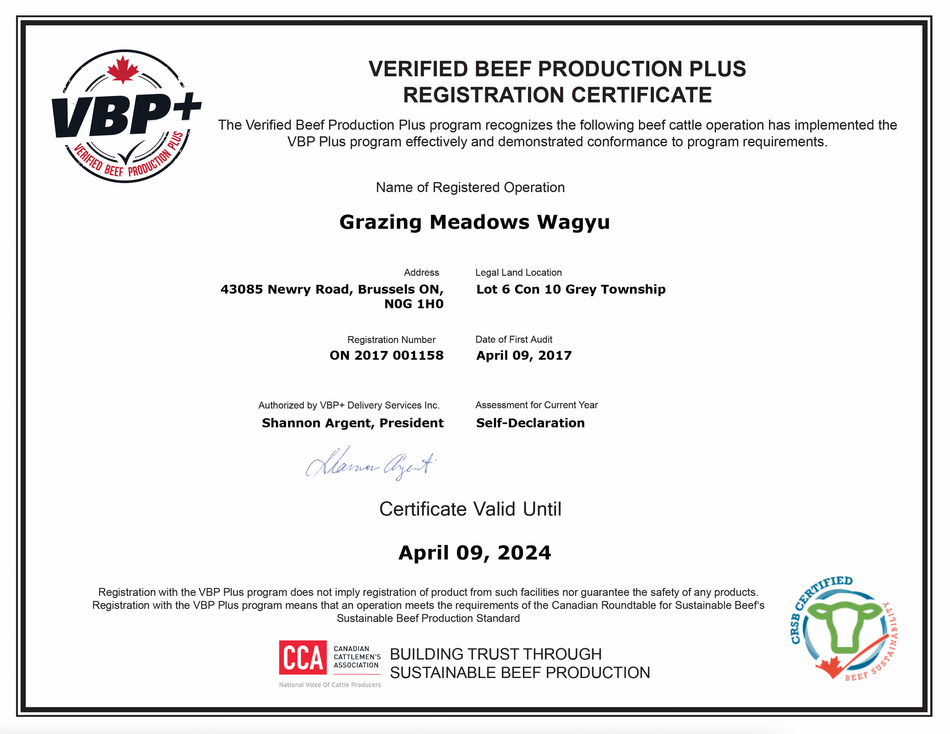WELCOME TO GRAZING MEADOWS WAGYU
For close to a decade our desire at Grazing Meadows Wagyu has been the advancement, promotion and awareness of the Wagyu breed of cattle.
The welfare of our animals is our premier concern, so we believe in raising them as naturally as possible. Our cattle are grazed on the lush green grasses of our Huron County farm in the growing seasons of spring, summer and fall. In the winter months our cattle are fed grass hay and some grain pellets. A total natural feeding program.
As passionate promoters of growing cattle on grass, we never pass up an opportunity to convince people of the benefits of raising our animals on grass using rotational grazing principals.
Having been fortunate to travel to different parts of the world and view how some of the leaders in the industry are changing the accepted way of raising animals to reduce the impact on the environment and improve the quality of life for the animals, has allowed us to adopt these practices into our operation.
-
ABOUT
LEARN MORE -
OUR MARKET
SHOP HERE -
OUR LIVESTOCK
LEARN MORE
Testimonials
-Andrew
-Rick
Thank you for a wonderful evening Friday night! The company and Waygu steak dinner was a 10 out of 10
- Chloe
-Alexandre
Exciting Stuff
General Questions
- Why Wagyu?
Wagyu is arguably the best and most expensive beef money can buy. With its exceptional marbling, superior tenderness and exquisite flavor, it’s no wonder Wagyu is the pinnacle of the beef world.
Through careful genetic selection and feeding, Wagyu producers can create an experience for connoisseurs unmatched by any other beef. From executive chefs to the weekend barbecue fan, Wagyu offers a level of quality that can be enjoyed by everyone. And with its proven health benefits, choosing Wagyu isn’t just a treat for your taste buds, it’s great for your heart as well.
Wagyu beef really does take red meat to a level beyond Prime. Try it today.
The opportunities Wagyu beef can offer are endless. This industry caters for the breeder / feeder targeting the high end restaurant trade with highly marbled beef to the bull producer supplying the cow / calf rearer a crossbred alternative that will offer calving ease ability and premium carcass quality in a single cross which no other beef breed can come close too.
- What are WAGYU?
WAGYU - a Japanese beef cattle breed – derive from native Asian cattle. 'WAGYU' refers to all Japanese beef cattle, where 'Wa' means Japanese and 'gyu' means cow.
Wagyu were originally draft animals used in agriculture, and were selected for their physical endurance. This selection favored animals with more intra-muscular fat cells – ‘marbling’ – which provided a readily available energy source. Wagyu is a horned breed and the cattle are either black or red in colour.
- What is the difference between Kobe beef and Wagyu?
The words Kobe beef are used a lot when people talk about a luxury dining experience. To put it simply, while all Kobe beef is Wagyu, but not all Wagyu is Kobe beef. Not surprisingly most people are, hopefully we can give you the information you need to be informed the next time you are looking to purchase Kobe/Wagyu beef.
In Japan Wagyu translates to “Japanese cow “and refers to any one of four breeds of cattle and is often named for the region it is raised in. Kobe is one such name. For beef to named Kobe, it must come from the Hyogo Prefecture in Japan and be raised to the Kobe Beef Marketing and Distribution Promotion Association rules.
In 2016, only eight (8) restaurants in the United States served registered Kobe beef and none was available on the open market for consumers to purchase. This rarity and the quality of the beef means that prices are typically $50 or more per ounce, depending on the quality of the product.
So that is a quick explanation on what legitimate Kobe beef is, so what about Wagyu?
Outside of Japan the term Wagyu should refer to fullblood cattle bred from the original Japanese breeds. Fullblood cattle from these strains retain the traits that produce a superior tasting beef.
Consumers should be aware that there are no laws stopping sellers from calling their beef Kobe or claiming that their Wagyu is fullblood and not a mixed breed variety.
The best way to protect yourself is to buy your beef from a reputable breeder like Grazing Meadows Wagyu.
- Why does Wagyu taste so amazing?
Almost everyone who has had the opportunity to enjoy Wagyu beef will tell you that it is the paramount beef dining experience, but what makes it so.
Thru its long history, Wagyu beef has been bred to produce a meat with intense, even marbling. Typically Wagyu can have 17% or more marbling than Angus beef. This fatty web of goodness contains more omega-3 and omega-6 fatty acids than other beef and a high percentage of oleaginous unsaturated fat. Simply put, the more fat, the more rich buttery taste there is. Wagyu beef fat has a low melting point and can typically melt in your mouth.
Don’t worry about all this fat making your meat chewy and gristly, properly raised, prepared, and cooked Wagyu will be a melt in your mouth, intensely beef flavoured, joy to eat.
The unique taste and tenderness of highly marbled Wagyu beef makes for an unrivalled eating experience. That is why Wagyu beef is finding its way into the repertoires of Gourmet cooks and fine restaurants around the world.
Not only is it a gastronomic delight, but it’s healthy for you too. Health experts have discovered the mono-unsaturated to saturated fat ratio is higher in Wagyu than in other beef and, the saturated fat contained in Wagyu is different. Forty percent is in a version called stearic acid, which is regarded as having a minimal impact in raising cholesterol levels. The profile of marbled Wagyu beef is more beneficial and healthier to human health.
Wagyu is also higher in a type of fatty acid called conjugated linoleic acid (CLA). Wagyu beef contain the highest amount of CLA per gram of any foodstuff – about 30% more than other beef breeds – due to higher linoleic acid levels. Foods that are naturally high in CLA have fewer negative health effects.
- Are Wagyu cattle difficult to raise?
While no breed of cattle is “easy” to raise, let’s face it you just can’t put them in a field and come back in 12 months and collect your money, Wagyu cattle have some characteristics that are of a benefit to you as a producer.
On the plus side Wagyu generally calf easier than other breeds and Wagyu heifers typically reach puberty at 12.5 months compared to an Angus heifer at 14 months. Bulls have a very healthy libido and can reliably service 50% more females than other breeds. Wagyu are also quite adaptable to different environments.
Some things to consider you should consider if you are thinking about producing Wagyu should include, the cost of fullblood breeding stock will be more than breeding stock of other breeds.
Wagyu require 24 months on average to reach harvest. For the best quality Wagyu, more attention to their diet is required than other beef breeds.
- WAGYU Breed History in Japan
There is some evidence of genetic separation into the Wagyu genetic strain as much as 35000 years ago. Modern Wagyu cattle are the result of crossing of the native cattle in Japan with imported breeds. Crossing began in 1868 after the Meiji restoration in that year. The government wanted to introduce Western food habits and culture.
The variation of conformation within the Wagyu breed is greater than the variation across British and European breeds. The three major black strains - Tajiri or Tajima, Fujiyoshi (Shimane) and Kedaka (Tottori) evolved due to regional geographic isolation in Japan. These breeding differences have produced a Japanese national herd that comprises 90% black cattle with the remainder being of the red strains Kochi and Kumamoto. For more information on the genetic diversity of the breed.
All Rights Reserved | Grazing Meadows Wagyu | Privacy Policy
